- Home
- Tanya Anne Crosby
The Summer Star: One Legend, Three Enchanting Novellas (Legends of Scotland Book 2) Page 15
The Summer Star: One Legend, Three Enchanting Novellas (Legends of Scotland Book 2) Read online
Page 15
“Only your sire, cèol mo chridhe.” Music of my heart. “Brighde will return another day—as she has since I was a lad. I dinna ken how she keeps her youth, but that woman must be auld as dirt.”
The two were one; Una and Brighde. There was no other explanation for it, and there was so much more to say, but Sorcha felt dumb with emotion.
Slowly, Caden pulled away, grabbing Sorcha by the shoulders, to hold her steady. “Only hear me now, mo chridhe, my heart, there is someone else who would like to speak to ye if ye’d allow it—”
Before Sorcha could say yeah or nay, her brother Aidan burst into the room, looking as harried as she had ever seen him. “Sorcha!” he said. “Thank Cailleach!”
“Or Brighde,” she murmured, and she gave her brother a trembly smile. Someday, she would tell him everything—or then, again, perhaps not. If Una had not revealed herself to anyone else, there was quite possibly a reason for it, and Sorcha daren’t defy her.
She urged Caden to release her from the bed, and stood, casting herself into her brother’s arms, without reservation, her throat too thick to speak. Then, she spied Keane over Aidan’s shoulder, and released Aidan to embrace the youngest of her brothers. In truth, she had thought never to see either again. And she had mistakenly believed she didn’t wish to, but, heavens, so much had changed since leaving the Vale.
Her only grievance now could be that Lìli was not present to witness their reunion. If Sorcha lived a hundred thousand years, she would never again take any of her siblings for granted. She might be the blood of a devil, but betimes even devils were favored by grace. Padruig’s was this: He’d borne two daughters whose hearts were pure, and nevertheless, the man was too blind to see where his strengths lay, in them—a fine bit of irony in that, for he was felled by a man whose eyes betrayed him and who needed only remember that he, too, was favored by grace.
Aidan and Keane both reassured Sorcha that everyone was well—worried and waiting for news, but in good health. Cailin and Lìli were back in the Vale. Lianae awaited Keane at Dunràth. Lael was pregnant yet again, and Catrìona was none the wiser over Sorcha’s ordeal, but word had arrived a day before Aidan’s departure that she, too, at long last, was expecting a child—eleven years overdue!
Sorcha was not pregnant yet, nor would she speak about such things to her eldest brother, but she fully intended to make good use of Caden’s lustiness at every opportunity.
She shared a private smile with her husband, and then he ushered everyone out of their room to give Sorcha time to “rest.” Hours later, when they re-emerged into the great hall, hand in hand, and the tables were all filled with familial guests, Sorcha knew a moment’s chagrin over what they might have heard up in the tower—especially after she discovered they’d been graced with the King’s presence.
Judging by all the private smiles, perhaps they’d heard a bit too much. Although, mercifully, no one uttered a word—particularly not her brothers, although Bessie did remark that Sorcha would soon find herself with a whale of a belly. She could have been referring to the quality and quantity of their bounty, once all their gifts were disembarked, but Sorcha doubted it, judging by the knowing gleam in her eyes.
The evenings feast was a far-more sober occasion, despite that the revelry was still going on outside. The distant sound of the lute, and the roar of voices was reduced to a whimper inside Rònaigh’s great hall. It wasn’t meet to continue dancing and singing when a man lay dead—not to mention that he was Sorcha’s own father, no matter his sins. During the discourse that followed, Sorcha learned that, because of a misunderstanding, Aidan and Keane came late to their festival. Instead, they’d traveled with David to an island known as South Rònaigh, somewhat closer to Skye. It was the MacLeod himself who’d escorted them back into the North Sea. Unfortunately—or fortunately, as the case might be—they’d arrived after the confrontation with Padruig.
As for her sire, they handed his body—his head as well as his torso—to David mac Mhaoil Chaluim, to be returned to Padruig’s widow. Though, where Padruig’s lands and holdings were concerned, these were forfeited by Saundra Caimbeul. Padruig himself had decreed it with his bold words before the battle. In total, they were presented to Caden on the final night of the King’s visit to Rònaigh, in return for Caden’s fealty to the crown of Scotia. That night, much to the joy of Rònaigh’s people, the hall was restored to its former glory. The tapestries were clean. Fresh rushes were strewn about the floors, infused with bright yellow blossoms—and anyone from the isle could have said what these were.
The seat of honor—the storied chair that was once occupied by the great Conn himself—was offered to David mac Mhaoil Chaluim. And, whereas the Mac Sweins had not yet bound themselves to any sovereign, they did so now, bending the knee to David mac Mhaoil Chaluim in a formal ceremony witnessed by many.
In return, David offered Caden leave to raise the lion standard on Padruig’s seven stone towers. Clearing his throat, David stood before one and all and offered a toast to the Mac Swein and his bride.
“To clan Chattan,” he said. The clan of the cat. “May your sons and daughters lift you to greatness as your forefathers once did.” And to prove he had pure Scots blood running through his veins, he added, “Móran làithean dhuit is sìth.” May you be blessed with long life and peace.
“Alba gu brath!” said the congregation altogether, which was to say, without uncertainty, “Scotia forever!”
If you follow the Guardians series, you may wish to purchase the full-length version of this story, which includes extra scenes and a series-rich epilogue.
Buy Maiden from the Mist
More Guardians of the Stone
Series Bibliography
Also available as Audiobooks
Highland Fire
Highland Steel
Highland Storm
Maiden from the Mist
Once Upon a Highland Legend
Also connected…
The Highland Brides
The MacKinnon’s Bride
Lyon’s Gift
On Bended Knee
Lion Heart
Highland Song
MacKinnon’s Hope
&
Angel Of Fire
About Tanya
I’m a New York Times and USA Today bestselling author of twenty-five novels, and I have been featured in magazines, such as People, Romantic Times and Publisher's Weekly. My books have been translated into eight languages.
I started writing for Avon Books, where my first novel was published in 1992, and where where I was hailed as "one of Avon's fastest rising stars." My fourth book was chosen to launch the company's Avon Romantic Treasure imprint.
Known for stories charged with emotion and humor and filled with flawed characters I’m an award-winning author, journalist, and editor, and my novels have garnered reader praise and glowing critical reviews.
Along with my writer husband, we split our time between Charleston, SC, where I was raised, and northern Michigan.
For more information:
www.tanyaannecrosby.com
[email protected]
The Reiver
By Glynnis Campbell
For Barb Batlan-Massabrook
and Deborah Stewart,
two of the toughest "Scottish" lasses I know
ACKNOWLEDGMENTS
My sincerest thanks to
my sisters in The Summer Star,
Tanya Anne Crosby and Laurin Wittig,
for inspiring the legend;
my niece Rayna Barden
for sharing her knowledge of livestock;
my husband Richard Campbell,
for taking me on the best adventures;
my amazing Readers Clan,
for their love and support;
and Michelle Rodriguez and Chris Pratt
for their inspiration
Chapter 1
Summer 1211, Dumfries, Scotland
Brighde felt the star coming long before
anyone spied it in the night sky.
She could feel it in the way she felt the brush of a spider’s web or the faint caress of a breeze, the distant drone of honeybees or the delicate kiss of morning mist.
Every seventy-five years it came. Like a spark struck from a smith’s anvil, it streaked across the black night. For several days it hung in the heavens, sweeping close to the earth, lighting up heath and braes.
Some feared it would drop from the sky and set the world ablaze.
Brighde knew better. The star’s course never strayed.
But it did possess a singular magic—the power of transformation. And that power was dangerous, for it could be used for either good or evil.
Some claimed the star brought bad luck. They blamed it forfire and flood, famine and misfortune.
But those who believed in the goodness of the star were granted rebirth, renewal, redemption—a chance to begin again.
Brighde smiled as she tossed her shimmering golden locks over her shoulder and pulled the tap, filling her patron’s wooden flagon with ale.
Two lost souls whose fates would be changed by the star were about to cross Brighde’s path. She could feel it in her bones. One, the lass, was coming later this eve. The other was already on his way.
She turned toward the gap-toothed old soldier who’d plunked his coin down for a pint and gave him a brilliant smile.
“There ye go, lad,” she sang.
If he gave her a quizzical look for calling a man who appeared to be twice her age “lad,” she didn’t pay much heed. Her attention was centered, not on the soldier, but on the door. In another moment, he would arrive.
Brochan Macintosh didn’t really know why he was stopping at the inn. After all, he needed to get home to his young sons. He’d been gone for hours. And he hated to leave Colin and Cambel in the hands of his already overworked housekeeper.
For the last several weeks, he’d inhabited the tower house on the holding he’d inherited from his uncle, the former Laird of Macintosh. But the old laird must have grown daft or penniless over the last few years, for when Brochan arrived, the keep was deserted and half in ruins.
Brochan was doing most of the repairs himself—fixing leaks in the roof, replacing cracked timbers, rebuilding rotted stairs—while his two faithful servants swept out the moldy rushes, chased mice from the buttery, kept the household fed, and watched over his sons.
To have five of his cattle go missing in the last week only added to Brochan’s long list of problems to solve. He’d searched for hours today for the lost cows, scouring acres of the thick woods that made up the border of his property, to no avail.
Perhaps that was why he felt he deserved to stop for an ale at the roadside inn before he trudged home.
Throwing back the hood of his gray tartan brat, he ducked under the thatched roof and pushed open the heavy door. The inn was cheery inside, lit by tallow candles and a lively peat fire. He nodded a greeting to the old man seated by the hearth, the only patron in the inn at this hour. Then he untied the wooden cup from his belt and approached the bar.
When he set down his cup, he almost knocked it over, so rattled was he by the tavern wench beaming at him from the other side. She was as bright as an angel and as beautiful as a goddess. Her golden tresses spilled over her perfect bosom like honey. Her skin glowed as if lit from within. Her smile was as open, pure, and enchanting as a child’s.
But that wasn’t what made his cup stutter on the bar. Her eyes, like rare crystal, caught the light and reflected it back in mutable shades of green and blue.
“Good day,” she said. “I’m Brighde, at your service. What will ye have?”
Her voice was as lovely as her appearance. And yet he couldn’t help but compare her to that other beauty, the one who’d been taken away from him. No woman would ever measure up to his lovely wife, the mother of his sons. She’d been dead for five years. But his heart still ached when he thought about her sweet freckled face and her sky-blue eyes.
“Ale, please,” he said quietly.
Brighde took his cup and started filling it from the tap. “What are ye up to this fine summer’s day?”
“Not much,” he said.
“Indeed?” Her expression was amused, skeptical.
He reconsidered. Maybe the tavern wench had information about his lost cows. “Actually, I’m searchin’ for my cattle. Some o’ them have gone missin’. Ye haven’t heard anythin’ about any coos runnin’ loose, have ye?”
Brighde handed him his full cup. “Coos,” she mused.
He pulled a coin from his pouch for the ale and set it on the bar, then tossed back a healthy swig.
When Brighde picked up the coin, her eyes were twinkling. “’Tis a band o’ reivers after your coos,” she told him.
“What?”
“Reivers have stolen your cattle.”
He frowned. “Reivers? What reivers?”
“Och, that I can’t tell ye.”
“Then how do ye know ‘tis reivers and not—”
“They’re comin’ again tonight.”
“What?”
“The reivers. They’re comin’ again. Tonight.”
Brochan lowered his brows. The lass seemed very sure of that. What wasn’t she telling him? “Look, lass, if ye know somethin’…”
“Aye. I know somethin’.” Her eyes had taken on an unsettling silvery shade now, as if she were gazing into another world. “Watch for the reivers to return tonight. Ye’ll get your coos back…and more.”
More? What the devil did that mean?
Before he could ask her, she captured his eyes with her own, burning into them with blue-green fire, and the words suddenly fled from his mind. She murmured tenderly, “And ye’ll no longer be lonely.”
He gulped. Lonely? What made her think he was lonely? Brochan wasn’t lonely. He was rarely ever alone. He had his two sons. His two servants. And, until recently, a whole herd of cows. The woman must be mistaken.
Tearing his gaze away, he scoffed, “Lonely? I’m not lonely.”
Yet something about the way she’d spoken snagged at his heart. Something about his reply was empty and false. And something about the way she was gazing at him now—compassion softening her eyes to a gentle gray—made him believe she was peeking between his words of denial, peering at the truth. A truth he refused to admit, even to himself.
Her eyes lost all their frost then, darkening to a friendly blue, and she smiled. “Ye know, your stars are about to change, lad.”
He lifted a dubious brow. Had the young miss just called him a lad? “My stars.”
“Aye. But ‘tis up to ye whether ye lay claim to that fate,” she intoned, “or let it pass ye by.”
He took another cautious sip at his ale. “I see.” He didn’t see, not at all. Indeed, he was beginning to wonder if Brighde’s great beauty was compensation for a lack of wits.
“The star has chosen ye,” she said.
“The star,” he repeated.
The poor lass was mad. All stars did was light up the night sky.
He sighed. He knew he shouldn’t have wandered into the inn.
He finished his ale in a gulp and tied the empty cup back onto his belt. But before he could turn away, Brighde seized his hands in hers.
It startled him, especially when a warm vibration began to flow up his arms. Yet, even more startling, he felt no panic, no desire to pull away.
“Remember,” she whispered, gazing into his eyes with blue-green intensity. “Your destiny is in your hands.”
When she released him, he felt shaken to his core. But he wasn’t about to let her know it. Instead, he thanked her for the ale and turned to go. Faith, he had to get back home, back to people who believed destiny was determined, not by stars, but by hard work.
Still, as he plodded down the road toward the tower house, he wondered if Brighde’s comment about reivers had merit. It hadn’t occurred to him that his cows might have been intentionally stolen. But considering the chil
ly welcome Brochan had received from the local folk on moving into the tower, it was entirely possible that a couple of the hostile neighbor lads had thieved his cattle.
He decided there was naught to be lost by keeping a watchful eye on his herd tonight.
Cristy Moffat picked up her inconvenient skirts, cursing her throbbing ankle and struggling to keep up with her cousins. Her lungs were burning. But she didn’t want to get left behind.
The lads were always leaving her behind. It was bad enough that, even at eighteen, she was a wee lass and couldn’t match their long stride. But ever since she’d twisted her ankle at supper, every step sent a twinge up her leg.
It had been a stupid accident, entirely her fault. Serving her uncle pottage, she’d tripped over her cousin’s stray foot and slopped the soup into her uncle’s lap.
She supposed she deserved the clout he’d given her for her clumsiness. And it wasn’t the first time he’d called her a worthless lass. At least the black eye and the insult didn’t hurt like her ankle did.
Of course, she wasn’t about to let her cousins know she was in pain. If she did, they’d tell her she had to stay home. And more than anything, she wanted to come along.
Each of the five lads had taken a turn, creeping out at night to reive a cow from their new neighbor, Macintosh. Tonight was her turn. And she didn’t intend to miss her chance.
Her uncle didn’t much care for Macintosh, the new owner of the tower house and land adjoining his. Her uncle didn’t like strangers, especially those with more cattle than he had. So he’d crowed with glee over his sons’ stealth and trickery, happy to add another cow to his own herd at Macintosh’s expense.
Cristy was determined to show her cousins that she could reive cattle as well as any lad. And she meant to prove to her uncle that he was wrong, that she wasn’t entirely worthless.

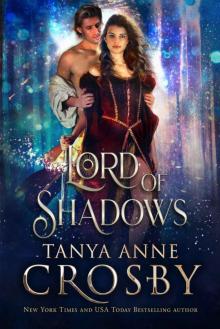 Lord of Shadows (Daughters of Avalon Book 5)
Lord of Shadows (Daughters of Avalon Book 5)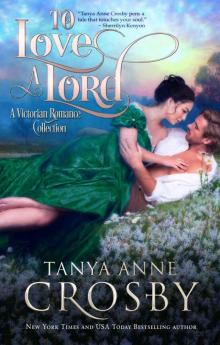 To Love a Lord: A Victorian Romance Collection
To Love a Lord: A Victorian Romance Collection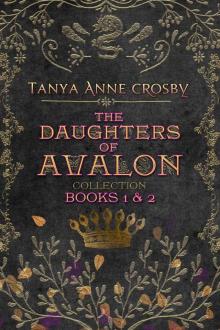 The Daughters of Avalon Collection: Books 1 & 2
The Daughters of Avalon Collection: Books 1 & 2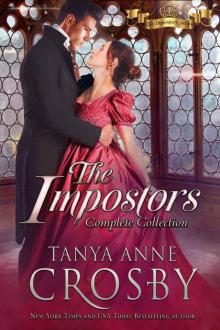 The Impostors: Complete Collection
The Impostors: Complete Collection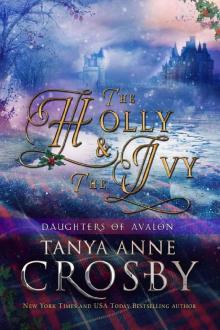 The Holly & the Ivy (Daughters of Avalon Book 2)
The Holly & the Ivy (Daughters of Avalon Book 2)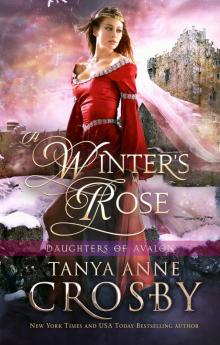 A Winter’s Rose
A Winter’s Rose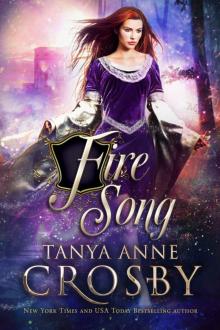 Fire Song (Daughters of Avalon Book 4)
Fire Song (Daughters of Avalon Book 4)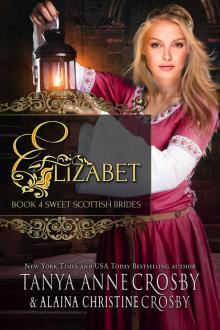 Elizabet
Elizabet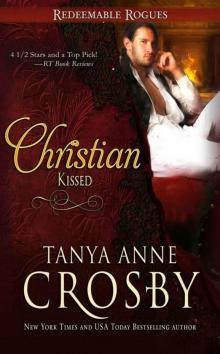 Kissed; Christian
Kissed; Christian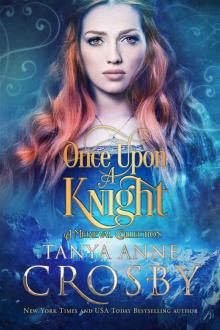 Once Upon a Knight
Once Upon a Knight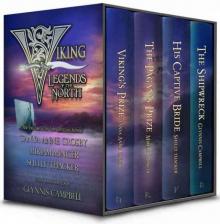 Viking: Legends of the North: A Limited Edition Boxed Set
Viking: Legends of the North: A Limited Edition Boxed Set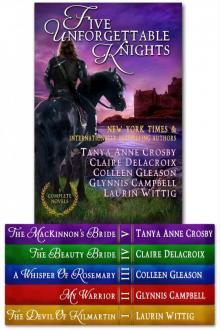 Five Unforgettable Knights (5 Medieval Romance Novels)
Five Unforgettable Knights (5 Medieval Romance Novels)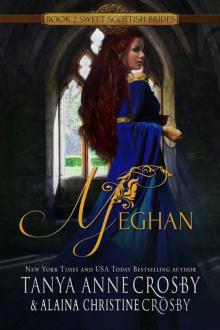 Meghan: A Sweet Scottish Medieval Romance
Meghan: A Sweet Scottish Medieval Romance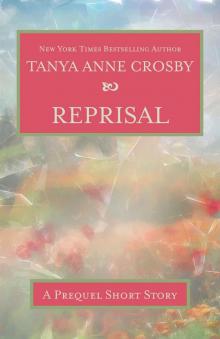 Reprisal: A Prequel Short Story to REDEMPTION SONG
Reprisal: A Prequel Short Story to REDEMPTION SONG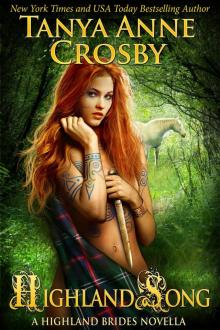 Highland Song
Highland Song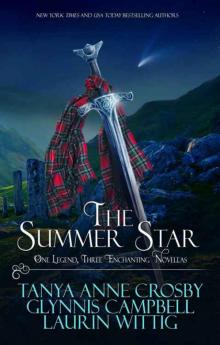 The Summer Star: One Legend, Three Enchanting Novellas (Legends of Scotland Book 2)
The Summer Star: One Legend, Three Enchanting Novellas (Legends of Scotland Book 2) Once Upon a Kiss
Once Upon a Kiss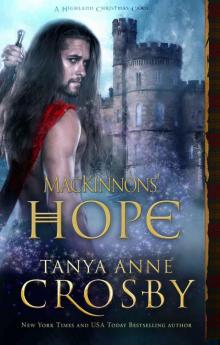 MacKinnons' Hope: A Highland Christmas Carol
MacKinnons' Hope: A Highland Christmas Carol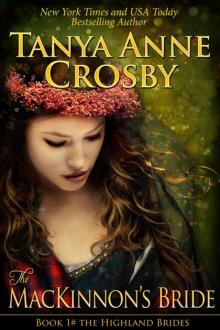 The MacKinnon's Bride
The MacKinnon's Bride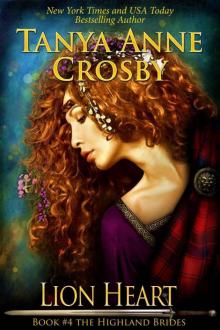 Highland Brides 04 - Lion Heart
Highland Brides 04 - Lion Heart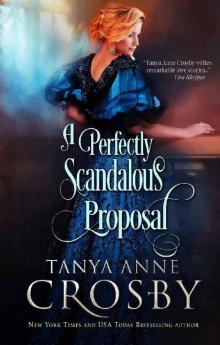 A Perfectly Scandalous Proposal (Redeemable Rogues Book 6)
A Perfectly Scandalous Proposal (Redeemable Rogues Book 6) Reprisal
Reprisal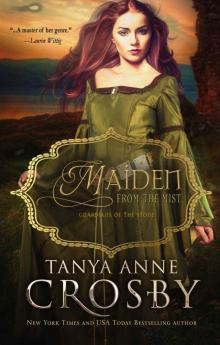 Maiden from the Mist (Guardians of the Stone Book 4)
Maiden from the Mist (Guardians of the Stone Book 4)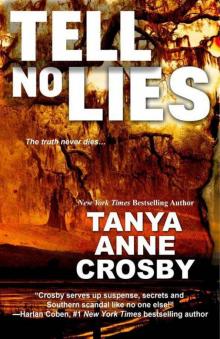 Tell No Lies
Tell No Lies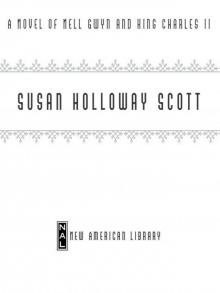 The King's Favorite
The King's Favorite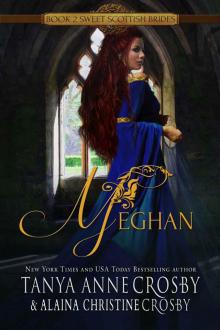 Meghan: A Sweet Scottish Medieval Romance (Sweet Scottish Brides Book 2)
Meghan: A Sweet Scottish Medieval Romance (Sweet Scottish Brides Book 2)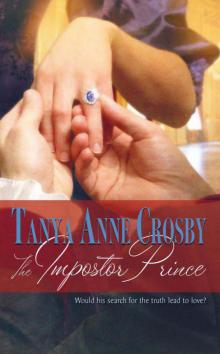 The Impostor Prince
The Impostor Prince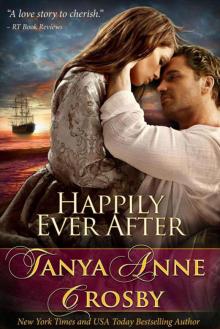 Happily Ever After
Happily Ever After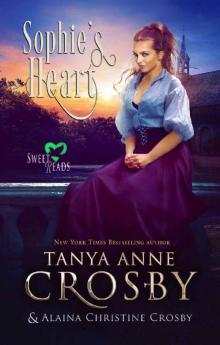 Sophie's Heart: Sweet Historical Romances
Sophie's Heart: Sweet Historical Romances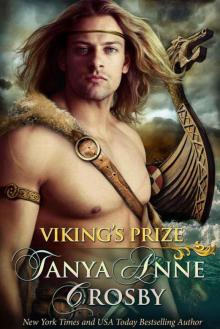 Viking's Prize
Viking's Prize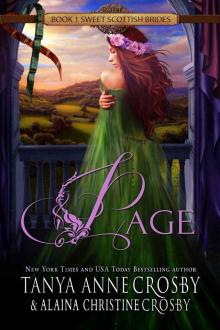 Page
Page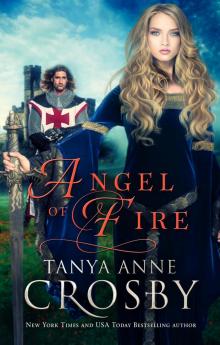 Angel of Fire
Angel of Fire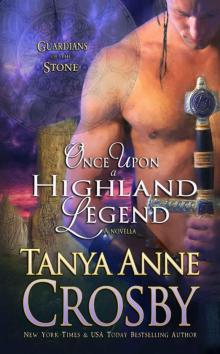 Once Upon A Highland Legend
Once Upon A Highland Legend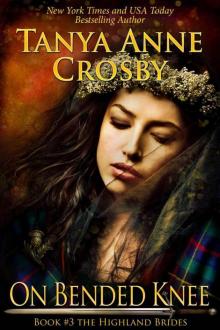 Highland Brides 03 - On Bended Knee
Highland Brides 03 - On Bended Knee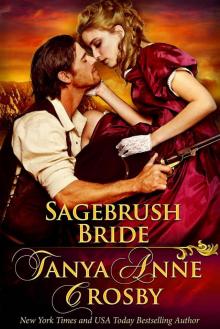 Sagebrush Bride
Sagebrush Bride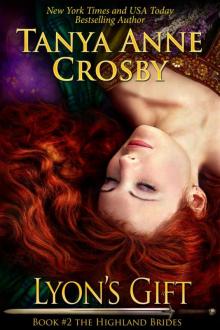 Lyon's Gift
Lyon's Gift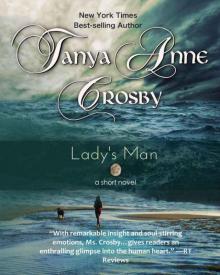 Lady's Man
Lady's Man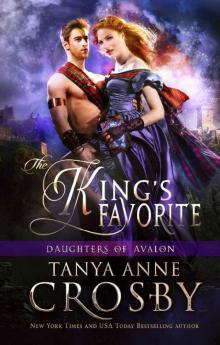 The King's Favorite (Daughters of Avalon Book 1)
The King's Favorite (Daughters of Avalon Book 1)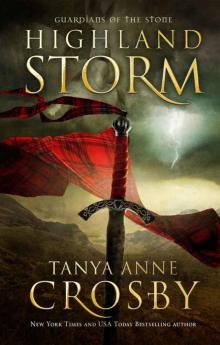 Highland Storm
Highland Storm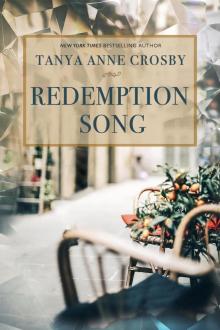 Redemption Song
Redemption Song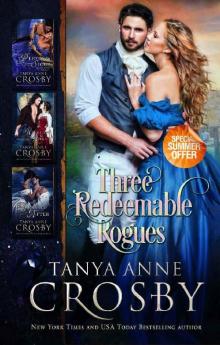 Three Redeemable Rogues
Three Redeemable Rogues